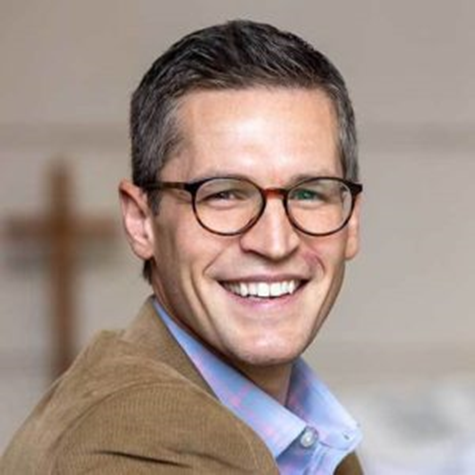Resurrection Overland Park launched as a new church a few years ago with a small staff team. The team did not include a person dedicated to student ministry. But, we had students! So, like many churches, a few volunteers got together to ensure our students had a place to connect. I wasn’t trained in student ministry but cared deeply about the faith formation of our young people. It was a wild time! Today, I’m grateful we have an amazing part-time student ministry director who loves leading our student ministry.
In this post, the second post of a two-part series, I’m thinking about families and their faith formation post-pandemic. I encourage you to go back and read part one, and then return to this post. If you spend any time with students, if you are a parent or grandparent of a student, or just care about the faith of future generations, you know the trends.
Here’s the narrative you might hear from time to time—teenagers participate less and less in the church today. And yet, some research suggests that many US teenagers report they have religious or spiritual experiences once or twice a month.
In an expansive study, Barna takes time to understand the culture, beliefs, and motivations shaping today’s teenagers, often called Gen Z. If you are immersed in student ministry or want to learn more, their research provides an excellent tool.
How do you get the conversation with your teenagers, or the teenagers who are part of your church, started?
This is one area where Barna provides interesting research. For teenagers, both Christians and non-Christians, one major barrier to faith is the problem of evil. For those who do not identify as Christian, other barriers to faith include statements like “Christians are hypocrites” or “I believe science refutes too much of the Bible.” Teenagers, like all of us, wrestle, ask questions, and search for meaning.
We play a part in helping facilitate teenagers’ connection with their faith, their church communities, and formation.
I asked Leah Swank Miller, the Director of Student Ministry at Resurrection Overland Park, about how she connects with students. She shared, “My hope is to understand what students in this generation are concerned with in life. This means listening to their big life and faith questions, sometimes asking them questions, and then making sure students are at our tables, sharing their voice when we adults talk about faith.”
I don’t know about you, but sometimes a 13 or 17-year-old can be intimidating! I’m never more unsure of myself than when talking to a teenager who is cooler, nerdier, and smarter (all at the same time) than me.
Again, I asked Leah to share her thoughts, “It’s important to understand that with middle school and high school students, parents are also involved. So, student ministry is more than just ministry to students. It requires coming alongside the entire family so together they can navigate the tough questions about life and faith. As a student ministry leader, I try to equip the entire family with resources to use in their home.”
Here are some examples of what this looks like.
Our student ministry leaders provide families with topics to discuss around their dinner table or in the car. The topics are connected to discussions from Sunday morning or Wednesday Night programming. Topics are posted online on the student ministry website (for us, a recent topic was mental health), on the YouTube channel, as well as social media channels. We include questions, resources, data and other options for follow up conversation. The hope is to provide conversation starters via several pathways to get the conversation started.
You don’t even need to have a beautiful website to get started, a polished social media presence, or have it all together (in fact, the new fast growing apps students use trend toward authenticity). Simply, start a relationship with a small group of students! The real power of student ministry is in the relationships.
Jon Acuff said it this way at a recent Orange Conference, “Accidental connection is over, the future is intentional.” The world we live in is hyper-connected, we can form communities across vast geography, and still, every generation longs for connection, relationship, and to know they are loved by God. With teenagers, we cannot afford to miss out on maximizing that need for connection. Shepherding families and building relationships that help students discover Christ as a pastor is one of those “pinch myself, do I really get to do this” kind of jobs. When entire families come alive in their faith, I think all of Heaven dances!

Joshua Clough served as Location Pastor for Resurrection Overland Park. He completed his doctorate in Practical Theology and Leadership at Fuller Theological Seminary. He runs marathons, ultra-marathons, and because he grew up in Seattle, drinks a lot of coffee.